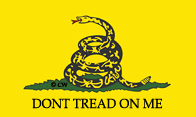The Catholic Church's position on the "morning after" pill has never changed, despite some flim-flam statements by the "Catholic" Health Association.
Bishop Elio Sgreccia, President of the Pontifical Academy for Life, spoke with LifeSiteNews.com Tuesday on the subject of the use of the morning after pill in cases of rape. Catholic hospitals in several dioceses in North America are currently administering the pill (Plan B) to patients who claim to be victims of rape.
According to Bishop Sgreccia, however, the morning after pill may not be administered by Catholic physicians. The only Vatican opinion on the subject, absolutely prohibiting the use of the pill, was released by the Pontifical Academy for Life in 2000. Since then, however, the Catholic Health Association, advisor to many bishops conferences, has suggested that there is no moral impediment to using the pill in cases of rape. Several bishops conferences have followed the advice and permitted administration of the drugs in Catholic hospitals in cases where rape is asserted.
The Catholic Health Association was, umnnnnnhhhh.....overstepping its bounds.
...Bishop Sgreccia affirmed that the position of the Church on the matter has not changed since the 2000 publication of the Pontifical Academy's document. "But the position of the church is the same," he told LifeSiteNews.com. "The morning after pill is dangerous; is an abortifacient when there is a conception and so illicit to prescribe by doctors."
"Thus," added the Bishop, "there is the same position from the beginning of the presentation of this pill. It is not medicine, not a composition for health, so physicians are not obliged to prescribe it. It is forbidden for Catholic doctors to prescribe it and also to be requested by Catholics."
LifeSiteNews.com asked Bishop Sgreccia if there was an exception in cases of rape. The President of the Pontifical Academy for Life replied, "No. It is not able to prevent the rape. But it is able to eliminate the embryo. It is thus the second negative intervention on the woman (the first being the rape itself)."
The key to the decision lies here:
..."if we're dealing with human life and there is some reasonable doubt placed in the equation we should not use (the pill). "If there's reasonable doubt whether or not there is a child then it should not be used."
And just for the Wisconsin Bishops, an example which should make sense:
Baker, quoting a classic example of St. Thomas Aquinas on the matter, explained: "It's the same as that classic case. If you're out hunting and you see something moving in the bush and you don't know if it's the deer or your fellow hunter, then you don't shoot."
After some delay, Abp. Timothy Dolan and Bp. Callahan of Milwaukee sent a letter to the Wisconsin Legislature concerning AB377--a bill which would force ALL hospitals and physicians in the State of Wisconsin to administer the "morning after" pill on demand to victims of rape. He joined Bp. Listecki of LaCrosse and Bp. Morlino of Madison, both of whom had previously warned about the proposal. (Still MIA: Abp Weakland and Bp. Sklba, among others.)
Dolan's letter did not specifically call for a "conscience clause" in the Bill--perhaps because the State Constitution provides for that. However, the Archbishop did mention the Church's position:
Emergency contraception can, at times, amount to abortion, and both reason and our faith tell us that this is never acceptable. About this we must be very clear.
...and he promised support to those physicians who refuse to obey the law:
...with the promise that we will stand strongly beside them in the future should the effects of emergency contraception legislation ever threaten the freedom of conscience which belongs to every human person as foundational to his or her religious liberty
However, a Vatican document clearly states that "neutrality" on this bill is inappropriate:
Finally, where a matter of the common good is concerned, it is inappropriate for church authorities to endorse or remain neutral toward adverse legislation even if it grants exceptions to church organizations and institutions. The church has the responsibility to promote family life and the public morality of the entire civil society on the basis of fundamental moral values, not simply to protect herself from the application of harmful laws
This blogger simply cannot reconcile the Vatican's advice with the "neutrality" expressed by the Wisconsin Catholic Conference in its original (and obviously flawed) letter to the Legislature.
Subscribe to:
Post Comments (Atom)




No comments:
Post a Comment